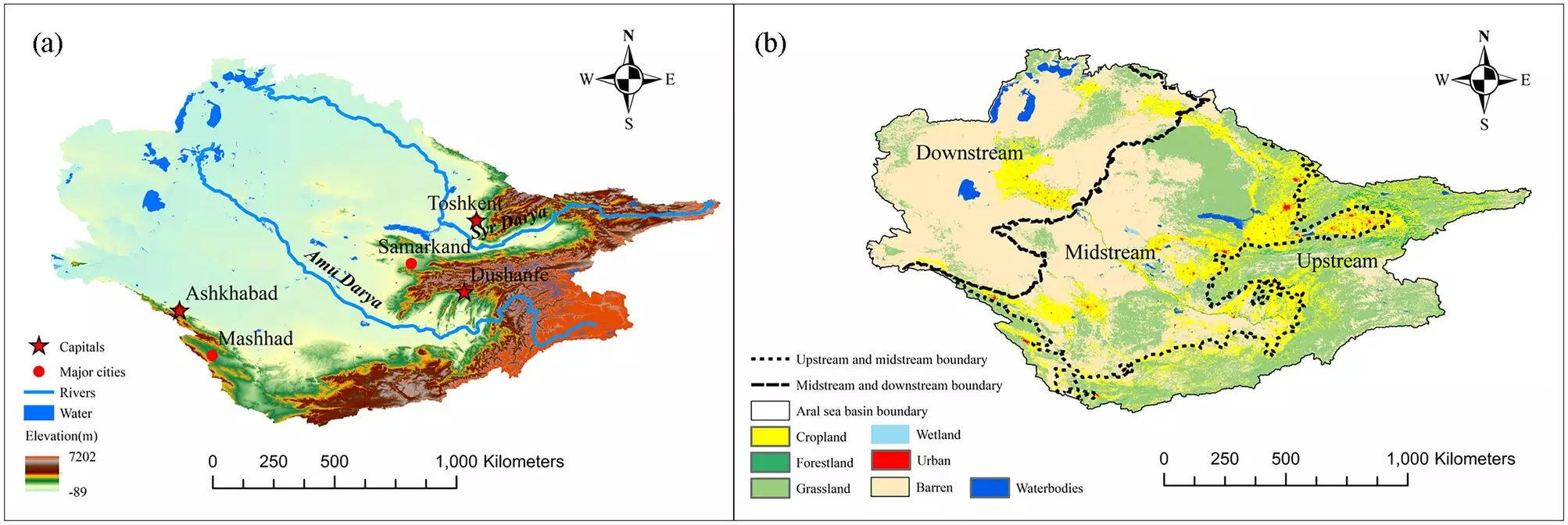

The Aral Sea, located in Central Asia, has been facing a severe crisis due to various factors such as climate change and human activities. The shrinking of the Aral Sea has led to significant reductions in key ecosystem services in the region, affecting the overall ecological balance.
A study published in Scientific Reports by researchers led by Prof. Yu Ruide from the Xinjiang Institute of Ecology and Geography of the Chinese Academy of Sciences, delved into the spatiotemporal changes of four crucial ecosystem services in the Aral Sea basin. They used advanced models such as the Future Land Use Simulation Model (FLUS) and Integrated Valuation of Ecosystem Services and Trade-offs (InVEST) to simulate the land use dynamics and ecosystem service provision in the region under specific scenarios.
The researchers found alarming trends in land use changes from 1995 to 2020, including a drastic reduction in water area by 49.59% and a considerable expansion of urban areas by 504.65%. This period also saw a continuous decline in cropland, forestland, and grassland, with a simultaneous increase in bare land and urban areas. The conflict between agricultural and urban growth was emphasized as a significant challenge in the region.
The study projected future scenarios from 2021 to 2100 under the SSP-RCP scenarios and highlighted a substantial loss of ecosystem services in the Aral Sea basin, particularly under the SSP245 scenario, which indicated agricultural degradation. The future projections also pointed to changes in the relationships between habitat quality, soil conservation, and water quantity, underscoring the complexities involved in managing ecosystem services in the region.
Prof. Yu Yang, the corresponding author of the study, emphasized the need for carefully designed restoration plans in the Aral Sea region, considering the synergies and tradeoffs between different ecosystem service combinations. Understanding the dynamic changes in ecosystem services is crucial for formulating effective land management plans that prioritize ecosystem health and sustainability.
The research sheds light on the urgent need for conservation efforts and sustainable management practices in the Aral Sea basin to mitigate the adverse effects of climate change and human activities on ecosystem services. By implementing targeted restoration plans and fostering interdisciplinary collaboration, it is possible to restore and preserve the ecological balance in the region for future generations.
In the realm of software development, the ability to swiftly and accurately address bugs is…
The realm of quantum computing and communication is not just an abstract dream anymore; it…
In a remarkable leap for the field of material science, a collaborative research initiative has…
Throughout Earth's vast history, our planet has endured five major mass extinction events that reshaped…
Rainfall is a vital element of our planet’s hydrological cycle, yet many aspects of its…
On a night when the universe aligns, a mesmerizing phenomenon awaits: the appearance of the…
This website uses cookies.